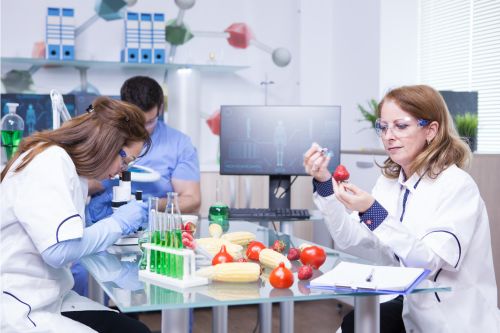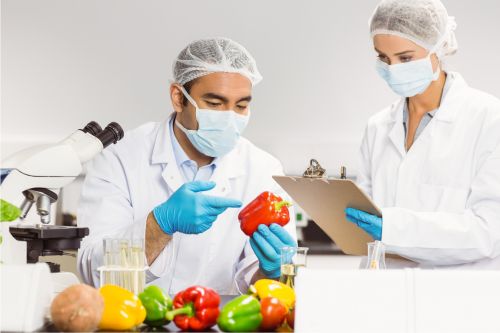Table of Contents
- Navigating the culinary frontier | Top food technology courses
- Why choose a food technology course?
- Top food technology courses worldwide
- Food Science and Technology courses at the University of California, Davis – USA
- Food Sciences and Technology Cluster at Wageningen University & Research – Netherlands
- MSc Food Technology – Quality Assurance at University of Reading – United Kingdom
- Food Science courses at Cornell University – USA
- Food Science courses at the University of Sydney – Australia
- Food Science and Technology program at the University of São Paulo – Brazil
- Master in Food Science and Nutrition at ETH Zurich – Switzerland
- Bachelor of Food Technology at Massey University – New Zealand
- Factors to consider when choosing a program
- Key takeaways
- FAQs
Navigating the culinary frontier | Top food technology courses
Food technology is a fast-growing field that plays a crucial role in ensuring the safety, quality, and sustainability of the food we consume. As the global demand for safe and nutritious food continues to rise, the need for well-trained food technologists has never been greater. If you aspire to be at the forefront of this industry, pursuing a food technology course is a wise choice. In this blog, we will explore the top food technology courses worldwide and provide you with invaluable insights to guide you in making an informed decision.
Why choose a food technology course?
Before discussing the specifics of the top courses, it’s essential to understand the significance of food technology and why you should pursue a course in this field. Food technology encompasses a wide range of disciplines, including food safety, food chemistry, food engineering, and food microbiology. By gaining expertise in these areas, you will be well-prepared to address critical challenges in the food industry, such as food-borne illnesses, food quality control, product development, and sustainable food production.
The food technology industry is global in nature, offering a diverse array of career opportunities. Whether you aspire to work in research and development, quality assurance, food production, or regulatory compliance, a food technology course can equip you with the knowledge and skills required to thrive in this sector.
Top food technology courses worldwide

Food Science and Technology courses at the University of California, Davis – USA
Renowned for its exceptional food science and technology programs, The University of California, Davis covers a wide range of topics. Topic includs food chemistry, food engineering, and sensory analysis. With access to modern facilities and a strong emphasis on research, UC Davis provides a comprehensive education.
Food Sciences and Technology Cluster at Wageningen University & Research – Netherlands
Ranked among the world’s top institutions for food science and technology consistently, Wageningen University offers a variety of food-related programs. They include Food Technology, Food Safety, and Food Quality Management. With a strong focus on sustainability and innovation, Wageningen prepares students to address the global food challenges of the future.
MSc Food Technology – Quality Assurance at University of Reading – United Kingdom
Known for its industry-relevant curriculum, the University of Reading’s MSc Food Technology- Quality Assurance program is designed to widen your skill set. Students can choose from various specializations, including Food and Nutritional Sciences and Nutrition. The university’s strong industry connections and research-focused approach provide students with real-world experience and knowledge.
Food Science courses at Cornell University – USA

Known for its Food Science program, Cornell University is a prestigious institution offering a wide variety of specializations. With a curriculum that emphasizes research and practical experience, students at Cornell gain a deep understanding of food chemistry, microbiology, food processing, and winemaking. The program also offers opportunities for internships and collaboration with industry partners.
Food Science courses at the University of Sydney – Australia
Food Science programs at the University of Sydney teach you the fundamentals as well as the applicable skills required to work in the food sector. The University of Sydney offers a Bachelor of Food and Agribusiness. This course covers a broad spectrum of topics related to food technology and agribusiness. It expands upon your skills and knowledge of the science of food products and processes, combined with studies of the business or economic environment.
Food Science and Technology program at the University of São Paulo – Brazil
For those looking to explore food technology in South America, the University of São Paulo in Brazil is a top choice. The university’s Food Science and Technology graduate program includs food processing, quality control, and safety. It is famous for its strong research programs and contributions to the food industry.
Master in Food Science and Nutrition at ETH Zurich – Switzerland
Food Science courses at ETH Zurich aim to secure global nourishment. It offers a Master’s in Food Science program, which combines advanced research with practical experience. Students get access to hi-tech laboratories and benefit from strong industry connections in Switzerland. The program covers a wide range of topics, from food chemistry to biotechnology.
Bachelor of Food Technology at Massey University – New Zealand
Bachelor of Food Technology program at Massey University in New Zealand provides skills needed to undertake independent research. It focuses on food product development, food safety, and quality assurance. With a strong emphasis on practical skills, Massey’s graduates are well-prepared to work in the various industries related to food.
Factors to consider when choosing a program
Selecting the right food technology course can be a daunting task, but it’s essential to consider several factors before making a decision-
- Determine your area of interest within food technology, as different programs may have distinct specializations.
- Ensure that relevant academic bodies or industry associations accredit the program.
- Research the faculty’s qualifications and their contributions to the field.
- Evaluate the quality of laboratories, libraries, and equipment available to students.
- Consider the program’s partnerships with food companies and its job placement record.
- Think about whether you prefer to study domestically or internationally.
- Assess the cost of tuition and the availability of scholarships or financial aid.
Key takeaways
- Food technology courses offer an excellent opportunity to pursue a fulfilling and impactful career in the food industry, addressing critical challenges such as food safety, quality control, and sustainable production.
- The global demand for well-trained food technologists is on the rise, making this field the right choice for those seeking rewarding profession.
- When choosing a food technology course, think about factors such as specialization, accreditation, faculty expertise, available resources, industry connections, program location, and financial considerations.
- Whether you aim to work in research and development, quality assurance, food production, or regulatory compliance, a food technology course can equip you with the knowledge and skills needed to excel in this field.
If you find this blog informative or have any questions, please share your thoughts in the comments section below. For further information or assistance with your queries about international courses, don’t hesitate to reach out to us. Click here to contact our dedicated team, and we’ll be delighted to assist you in your educational journey.
Liked this blog? Read next: Food technology in the USA in 2023 | A comprehensive guide
FAQs
Q1. What is the duration of food technology courses?
Ans- The duration of food technology courses can vary depending on the level of study (bachelor’s, master’s, or doctoral) and the institution. Typically, bachelor’s programs take 3-4 years, master’s programs take 1-2 years, and doctoral programs can take 3-5 years.
Q2. What are the recent trends and innovations in food technology that students should be aware of?
Ans- Students pursuing food technology should keep an eye on emerging trends, such as plant-based and alternative protein products, food biotechnology, clean labeling, and sustainable packaging, as these areas are rapidly evolving in response to consumer demands and environmental concerns.
Q3. Are there professional organizations or associations for food technologists?
Ans- Yes, several professional organizations, such as the Institute of Food Technologists (IFT) and the European Federation of Food Science and Technology (EFFoST), provide resources, networking opportunities, and support for professionals in the field of food technology.






